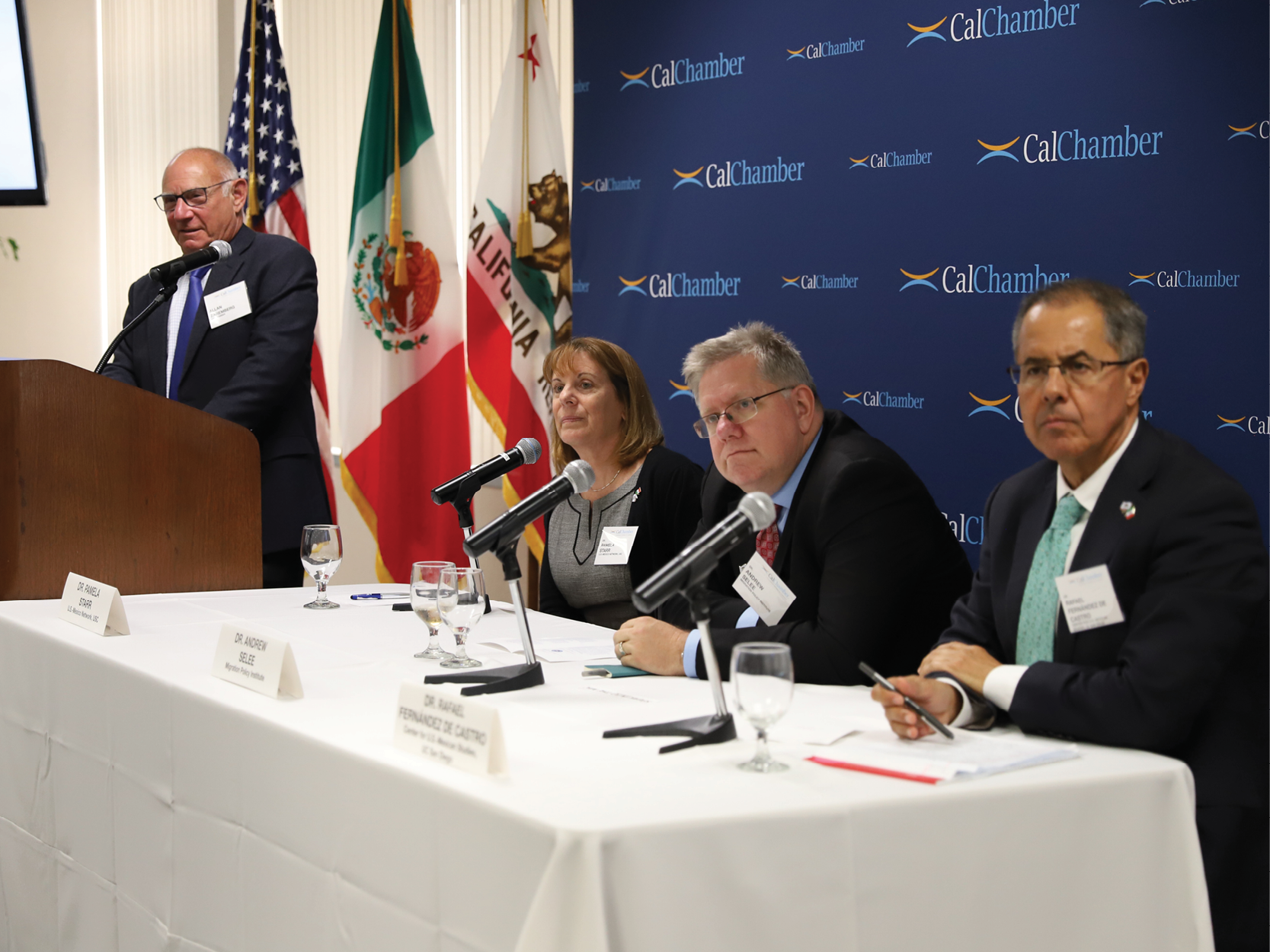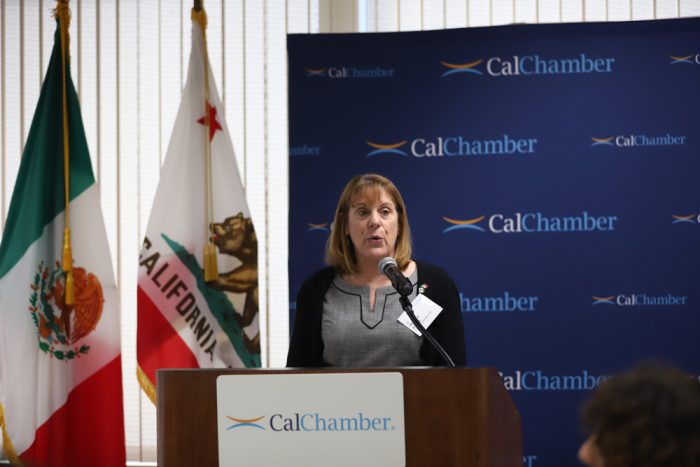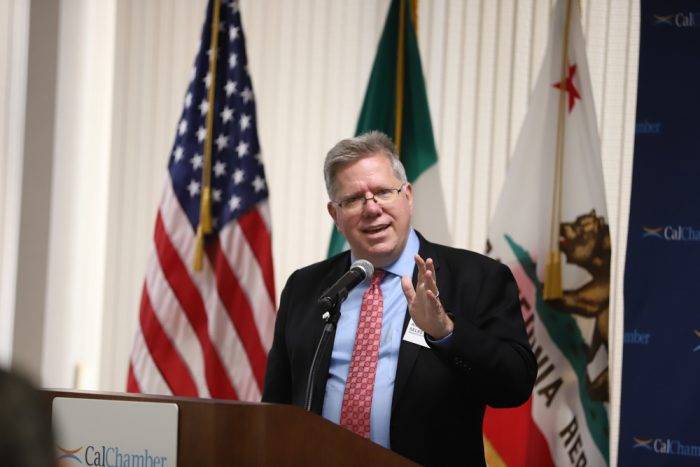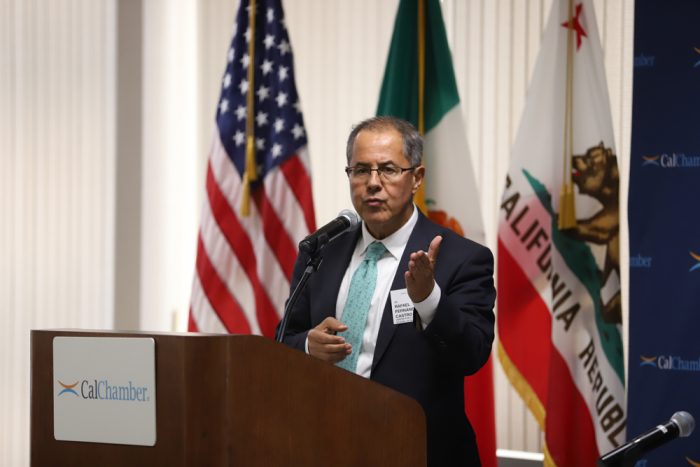
An international luncheon forum at the California Chamber of Commerce provided historical context and insights into the U.S. and California relationship with Mexico.
The Consulate General of México, Sacramento, represented by Ambassador Liliana Ferrer, joined CalChamber in presenting the May 7 forum, attended by 100 guests. The Automobile Club of Southern California, a CalChamber member, was the luncheon sponsor.

Dr. Pamela Starr
Dr. Pamela Starr, director of the U.S.-Mexico Network, University of Southern California, commented that the last quarter-century has been notable for the close bilateral collaboration between the U.S. and Mexican governments.

Mexico President Andrés Manuel López Obrador is highly conscious of the power differential between Mexico and the United States, and his actions are governed by the philosophy that Mexico shouldn’t give the United States any excuse to interfere in Mexico internal affairs, she said.
She commented that Mexico and California “produce things together through cross-border supply chains,” and the opportunity for engagement between California and Mexico is “enormous.”
Unlike his two predecessors as President, López Obrador is less interested in climate change and more focused on energy sovereignty for Mexico. Individual states, however, are interested in reducing their carbon footprint, she said, providing an opening for California to reach out on wind, solar power and a potential energy water corridor—especially to the leaders of Baja California following the June election.
Dr. Andrew Selee
Dr. Andrew Selee, president of the Migration Policy Institute, illustrated the economic contribution of immigrants from Mexico by citing the example of Hazleton, Pennsylvania. Where storefronts on the main street in the city once were shuttered, there now is a vibrant business district. Immigrants have rejuvenated the city, and large Mexican companies have a strong presence, having purchased the factory that produces 1 in every 4 pieces of fresh bread eaten in the nation—Bimbo Bakeries; Gruma owns the Mission brand tortilla plant outside the city—Americans now eat five times more tortillas than in the 1990s; and Mexican company Arca Continental owns the plant that makes Wise potato chips, the official potato chip of the New York Mets.

Selee expressed concern that disagreements about migration from south of the border will interfere with the ability of Mexico and the United States to “segment things” so that trouble in one area will “contaminate” the U.S.-Mexico trade relationship.
He commented that the number of Mexicans living in the United States dropped between 2010 and 2017, and that the latest huge influx of illegal immigrants is coming from Central America.
Selee called himself an “optimist” for the future of the U.S.-Mexico relationship. But, just as the pilot advises when an airplane hits turbulence, he said, “This is the moment to be fastening your seatbelts.”
Dr. Rafael Fernández de Castro
Dr. Rafael Fernández de Castro, director of the Center for U.S.-Mexican Studies, University of California, San Diego, said California “has an enormous potential to become a wonderful Mexican ally.”

He cited examples of close personal relations between leaders from the United States and Mexico as keys to the relationship between the two nations.
The signing of the U.S.-Mexico-Canada Agreement (USMCA) came about due to the excellence of Mexico’s negotiating team and commitment from both outgoing President Enrique Peña Nieto and incoming President López Obrador, Fernández de Castro said.
Fernández de Castro emphasized that for the future relationship between the United States and Mexico, it will be important for the two nations to do “something meaningful together” to address the migration of people from Central America.
A more detailed story on the luncheon forum is available on the CalChamber website.

